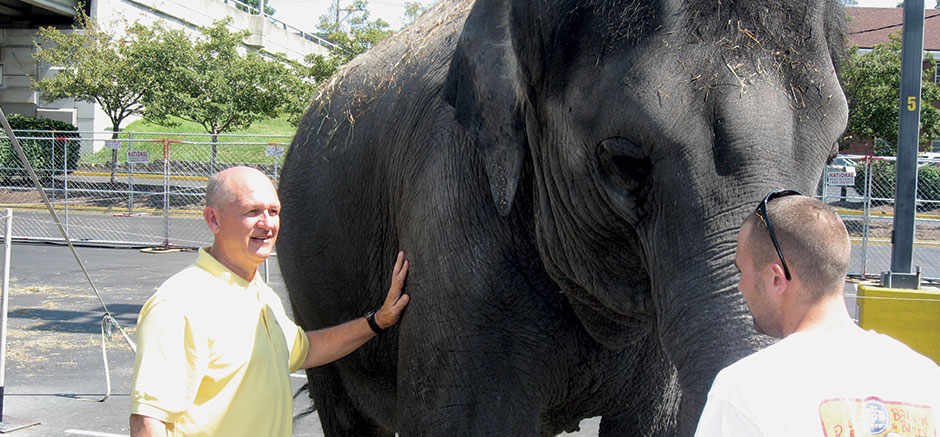
Working with endangered Asian elephants
Schmitt has worked with elephants for more than 30 years. In addition to his role at Missouri State, he serves as the chair of veterinary services and director of research and conservation at the Ringling Bros. and Barnum & Bailey Center for Elephant Conservation. In this capacity, he oversees the care of about 50 elephants for Ringling Bros.
Although elephants are smart, charismatic animals, they can come into conflict with humans.
“In attempts to keep elephants from damaging their crops and property, people come into direct conflict with elephants,” Schmitt said. “Sometimes the elephants win; sometimes people win.”
Due to this conflict and an aging elephant population, Schmitt’s work with breeding has become even more important. In 1999, Schmitt became the first researcher to produce an elephant from artificial insemination.
Since then, he has been at the births of about 20 elephants that were the result of artificial insemination.
“Artificial insemination allows us to provide genetic diversity by breeding (females) with unrelated males,” Schmitt said. “It gives facilities the opportunity to repopulate endangered species without having the housing for the males at the time.”
Schmitt added that if facilities are going to participate in breeding programs, they are required to have the space to house the males as they grow up. According to Schmitt, space won’t be a problem in several years as the aging elephant population is nonreproductive with the average lifespan in the upper 40s.
According to Schmitt, one way people can help these animals is to simply learn more about elephants.

